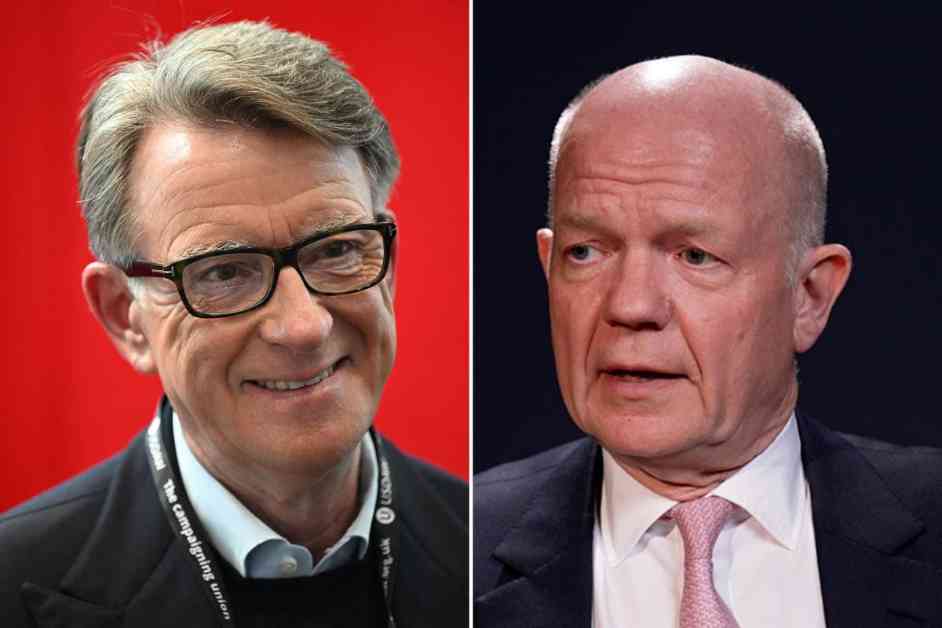William Hague has raised concerns about Peter Mandelson’s decision to pursue two high-profile roles simultaneously, sparking controversy in the race to become the next chancellor of the University of Oxford. In a recent interview, Lord Hague criticized Mandelson’s bid to become the UK’s new envoy in America while also vying for the prestigious position at Oxford.
Lord Hague emphasized that holding both positions would be “incompatible,” pointing out that the role of the Oxford chancellor requires active engagement and physical presence in the country and universities. He highlighted the evolving responsibilities of the chancellor, which now include fundraising and promoting the excellence of Oxford, necessitating frequent visits to the university.
Moreover, Lord Hague dismissed Mandelson’s assertion that the chancellor role is merely ceremonial and can be managed from afar. He emphasized the importance of being accessible and energetic in the position, contradicting Mandelson’s claim that living on the other side of the Atlantic would not hinder his ability to fulfill the duties of the chancellor.
In addition to critiquing Mandelson’s dual ambitions, Lord Hague addressed broader issues such as “cancel culture” on university campuses. He expressed his opposition to trigger warnings before Shakespearean plays, arguing that students should engage with diverse viewpoints and prepare for the real world, rather than seeking shelter in like-minded echo chambers.
Furthermore, Lord Hague reiterated his previous statement about Donald Trump, labeling the incoming president as representing a “dark cult” that threatens freedom worldwide. He warned against conservatives embracing figures like Nigel Farage, emphasizing that true conservatism should not align with policies that undermine democracy and free trade.
As the competition for the chancellorship at Oxford intensifies between the two seasoned politicians, Lord Hague emphasized the need for the right candidate regardless of political affiliation or gender. He pointed out historical examples of non-Tory chancellors at Oxford, highlighting the importance of selecting a qualified individual for the role.
In conclusion, Lord Hague’s critique of Peter Mandelson’s dual aspirations and his broader commentary on university culture and political trends underscore the complexities of leadership roles and the evolving landscape of higher education institutions. The upcoming decision on the new Oxford chancellor will be pivotal in shaping the future direction of one of the world’s most prestigious universities.












